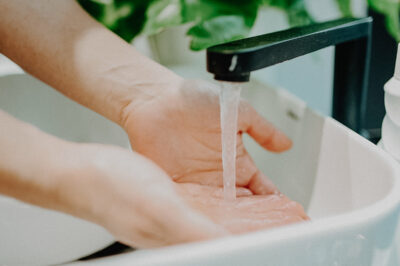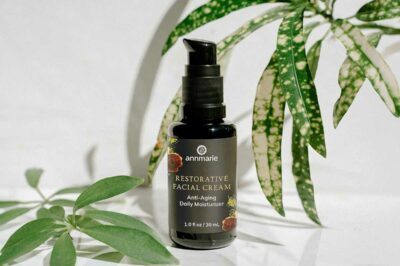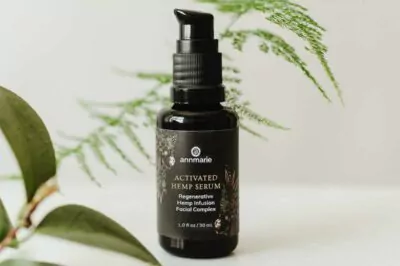Take a look at the cleansers in your house. Your hand cleansers, face washes, toothpastes, home cleaners, etc. How many times do you see an ingredient called “triclosan?”
An antibacterial and antifungal, triclosan gained popularity over the past few decades as Americans demanded more germ-killing products. Today, it’s the most commonly used antibacterial ingredient in consumer products worldwide, but many have questioned its safety for both consumers and the environment.
Forget the antibacterial soap—washing with good old soap and water is the best way to kill germs.
FDA Calls for More Research
As far back as 1978, the FDA proposed removing triclosan from certain products, but the agency took no final action, so manufacturers continued to add it to their formulas, then advertised them as capable of killing most microorganisms.
The FDA later announced that triclosan was no better at killing germs on hands than good old-fashioned soap and water, but it wasn’t enough—the ingredient continued to grow in popularity.
Now, after 40 years of study, the FDA is requiring manufacturers of antibacterial hand soap and body wash to prove their products are more effective than plain soap and water in preventing illness and the spread of infection, and to prove that their products are safe for long-term use.
It’s time to get these products out of your home!
Triclosan Tied with Hormonal Imbalance, Environmental Damage, and Superbugs
You can find triclosan in a number of products, including antibacterial soaps and body washes, toothpastes, some cosmetics, home cleaning products, and even in things like clothing, kitchenware, furniture, and toys.
Scientists at the FDA are revisiting the safety of the ingredient, which was found in animal studies to interfere with hormone levels and spur the growth of drug-resistant bacteria. Since we’re already facing a rise of superbugs that are resistant to our current arsenal of antibiotics—the CDC announced in 2013 that at least 23,000 people die from antibiotic-resistant infections—an ingredient that contributes to the rise of superbugs is a serious threat to our health.
Colleen Rogers, Ph.D., a lead microbiologist at the FDA, says there is currently no evidence that over-the-counter antibacterial soap products are any more effective at preventing illness than washing with plain soap and water, and may carry unnecessary health risks.
“New data suggest that the risks associated with long-term, daily use of antibacterial soaps may outweigh the benefits,” she says.
Some scientists worry that triclosan can disrupt hormones in the human system, increasing the risk of problems like infertility, early puberty, other developmental issues, and even cancer. Animal studies have linked the chemical with changes in testosterone, estrogen, and thyroid hormones.
Triclosan also presents an environmental hazard, as it takes a very long time to break down. It’s been found in decades old sludge at the bottom of lakes, in sewage, wastewater, surface water, and sediments. It’s highly toxic to algae and other aquatic organisms, and has been detected at high concentrations in earthworms.
According to a U.S. Geological Survey study of 95 different organic wastewater contaminants in U.S. streams, triclosan was one of the most frequently detected compounds at some of the highest concentrations. The chemical converts to dioxin— an even more toxic compound—when exposed to sunlight in our waterways. It can also combine with chlorine in tap water to form chloroform, which is a probable human carcinogen.
The new rule requiring manufacturers to prove benefits applies only to antibacterial soaps and body washes—not to other products like hand sanitizers, hand wipes and antibacterial soaps used in health care settings like hospitals. The results may eventually affect these other products, however. The agency is also asking consumers, clinicians, environmental groups, scientists, and industry representatives to weigh in on the proposed rule as they work to finalize it.
“Due to consumers’ extensive exposure to the ingredients in antibacterial soaps, we believe there should be a clearly demonstrated benefit from using antibacterial soap to balance any potential risk,” said Dr. Janet Woodcock, director of the FDA’s drug center.
How Can You Tell if Your Product Contains Triclosan?
Most products list the ingredient on the label. The FDA says you can also use these other clues:
- If the product has the word “antibacterial” on the label, it will most likely contain triclosan.
- If you see a Drug Facts label on soap or body wash, it’s a sure sign the product contains ingredients like triclosan.
The agency assures the public that so far, there are no human studies linking triclosan to health problems, but we wanted to warn you about the developments. We recommend you avoid the ingredient and use warm soap and water to wash your hands. Why take the risk?
What do you think about the FDA’s proposal? Please share your thoughts.
* * *
Sources
Saundra Young, “FDA examining antibacterial soaps, body washes,” CNN, December 17, 2013, http://www.cnn.com/2013/12/16/health/fda-antibacterial/.
Matthew Perrone, “FDA: Antibacterial soaps may not curb bacteria,” eNews, December 16, 2013, http://enews.earthlink.net/article/top?guid=20131216/26a0c5ef-7703-4b3e-bb77-7794ac16d3ae.
“FDA Taking Closer Look at ‘Antibacterial’ Soap,” FDA, http://www.fda.gov/ForConsumers/ConsumerUpdates/ucm378393.htm.
Matthew Perrone, “FDA Anti-bacterial Soaps May Not Curb Bacteria,” BET, December 18, 2013, http://www.bet.com/news/health/2013/12/18/fda-anti-bacterial-soaps-may-not-curb-bacteria.html.
“Triclosan: Environmental Fate and Effects,” Beyondpesticides.org, http://www.beyondpesticides.org/antibacterial/environmental/.
David R. Orvos, et al., “Aquatic toxicity of triclosan,” Environmental Toxicology and Chemistry, July 2002; 21(7):1338-1349.
“Triclosan Facts,” EPA, March 2010, http://www.epa.gov/oppsrrd1/REDs/factsheets/triclosan_fs.htm.








Leave a Reply